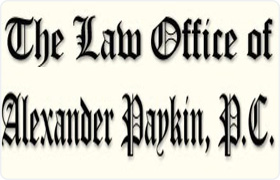Carle Place Real Estate Lawyer, New York, page 2
Sponsored Law Firm
-
 x
x

Click For More Info:
-
The Law Office of Alexander Paykin, P.C.
350 5Th Ave Fl 59 New York, NY 10118» view mapReal Estate Reliable. Dependable. Accessible.
Whether you are buying, selling, renting, or refinancing your house, our experienced legal team will strongly advocate for you at each and every step of the process.
800-747-9261
John F. Hamilton
Corporate, Construction, Banking & Finance, Labor Law
Status: In Good Standing *Status is reviewed annually. For latest information visit here
FREE CONSULTATION
CONTACTLeonard M. Ridini
Corporate, Land Use & Zoning, Lending, Real Estate
Status: In Good Standing *Status is reviewed annually. For latest information visit here
FREE CONSULTATION
CONTACTMichael A. Baranowicz
Construction, Litigation, Energy, Government Agencies
Status: In Good Standing *Status is reviewed annually. For latest information visit here
Mark I. Zelko
Corporate, Business Organization, Commercial Real Estate, Construction
Status: In Good Standing *Status is reviewed annually. For latest information visit here
Laura G Grossman
Estate Planning, Real Estate, Trusts, Wills
Status: In Good Standing *Status is reviewed annually. For latest information visit here
FREE CONSULTATION
CONTACTVictor L. Matthews
Condominiums, Commercial Real Estate, Complex Litigation, Commercial Insurance
Status: In Good Standing *Status is reviewed annually. For latest information visit here
Robert C. Buff
Construction, Real Estate, Litigation, Corporate
Status: In Good Standing *Status is reviewed annually. For latest information visit here
Jason L. Rothman
Government Agencies, Construction, Corporate, Government Contract
Status: In Good Standing *Status is reviewed annually. For latest information visit here
John P. Bues
Construction, Corporate, Real Estate, Litigation
Status: In Good Standing *Status is reviewed annually. For latest information visit here
James L. Iannone
Real Estate, Litigation, Estate Planning, Criminal
Status: In Good Standing *Status is reviewed annually. For latest information visit here
 Alexander Paykin New York, NY
Alexander Paykin New York, NY AboutThe Law Office of Alexander Paykin, P.C.
AboutThe Law Office of Alexander Paykin, P.C. Practice AreasSpecializations
Practice AreasSpecializations